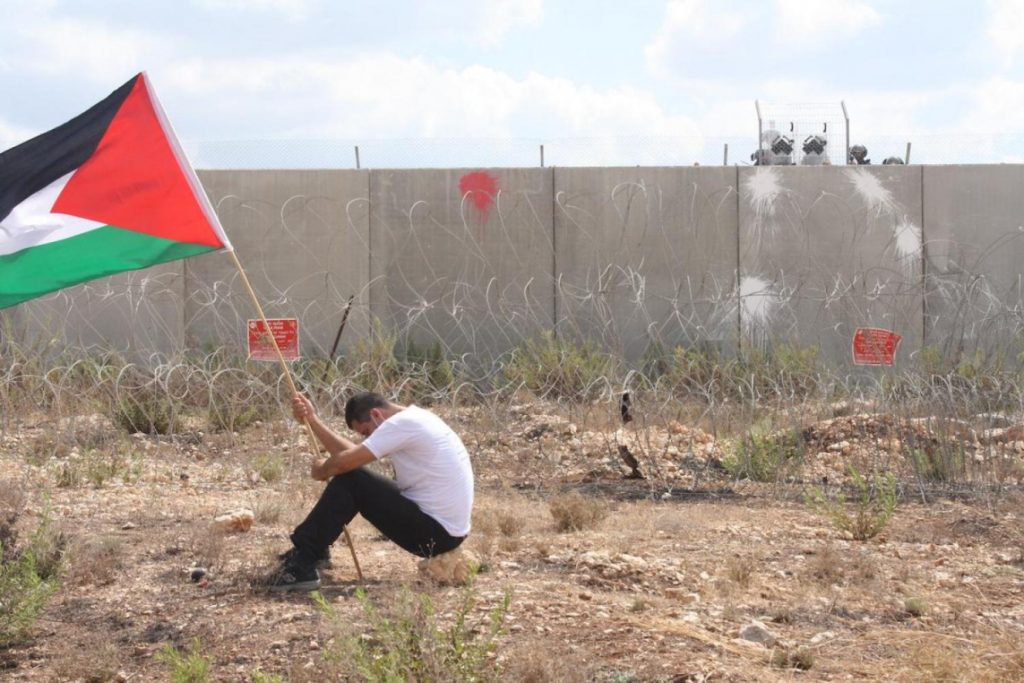The West Bank, a region at the heart of the Israeli-Palestinian conflict, has been under Israeli occupation since 1967. Following the Six-Day War, Israel took control of the West Bank, including East Jerusalem.
Over the years, the Israeli government has implemented policies that have resulted in a system where Palestinians are given lesser status compared to Jewish settlers, resulting in multiple accusations of enforcing apartheid for the Israeli state.
What Is Apartheid?
Apartheid is a system of institutionalized racial segregation and discrimination. Originally referring to policies implemented in South Africa from 1948 to 1994, it involved the legal and systematic separation of racial groups, privileging one group over others.
In a broader context, apartheid now describes any similar system of segregation and discrimination based on race, ethnicity, or other characteristics.
We will tackle the main aspects of this apartheid-like situation in the West Bank, illustrating how it makes life insufferable for Palestinians.
Land Confiscation and Settlement
One of the most visible aspects of the West Bank’s apartheid system is the confiscation of Palestinian land and homes. Indigenous Palestinians are often forced out of their homes to make way for Jewish settlers. These settlers, who sometimes arrive freshly from abroad, are granted Israeli citizenship and given immediate privileges.
As of 2023, over 600,000 Jewish settlers live in more than 200 settlements and outposts throughout the West Bank and East Jerusalem. These confiscations uproot families and strip Palestinians of their ancestral lands, leading to a fragmented society.
Unequal Access for Basic Needs
Basic necessities such as food and water are distributed unequally between Palestinians and Jewish settlers. According to various reports, the average Palestinian in the West Bank receives fewer calories of food compared to the average Jewish settler.
Specifically, a study by the United Nations Office for the Coordination of Humanitarian Affairs (OCHA) revealed that Palestinians receive an average of 60 liters of water per day, while settlers receive approximately 300 liters per day.
This gap means that many Palestinian families face water shortages and poor living conditions while settlers have abundant resources.
The Right of Movement
Freedom of movement is severely restricted for Palestinians in the West Bank. They must navigate a network of over 100 checkpoints that can turn short commutes into long journeys lasting up to eight hours. These checkpoints are not just physical barriers but symbols of the daily humiliation and hardship faced by Palestinians.
Additionally, there are roads and highways in the West Bank that Palestinians are not legally allowed to use. Different license plates issued to Palestinians and Jewish settlers mean that even on the road, the two populations are segregated.
Unequal Legal System
The legal system in the West Bank operates on a dual structure: one for Palestinians and another for Jewish settlers.
Palestinians are subject to military courts, where they often face harsh and unjust treatment. In contrast, Jewish settlers fall under the jurisdiction of Israeli civil law, which offers greater protections and rights.
This separation ensures that Palestinians have little hope for fair legal proceedings. For example, the conviction rate for Palestinians in Israeli military courts is estimated to be over 99%, reflecting the harsh reality of their legal circumstances.
Israeli Admission to Apartheid
Several human rights organizations within Israel have recognized and stated that the current regime in the West Bank resembles apartheid. Groups such as B’Tselem and Human Rights Watch have documented and reported on the systematic discrimination and segregation faced by Palestinians.
Highlighting the harsh realities of life under occupation, in 2021, B’Tselem officially labeled the situation as “a regime of Jewish supremacy from the Jordan River to the Mediterranean Sea,” affirming the apartheid nature of the system.
The situation in the West Bank is a clear example of an apartheid regime, where Palestinians live under oppressive policies that deny them basic rights and freedoms. Despite the recognition of these injustices by human rights organizations, the struggle for equality and justice continues.
WE SAID THIS: Don’t Miss…Navigating Disagreements: Harvard’s Engagement With Palestine Advocates



